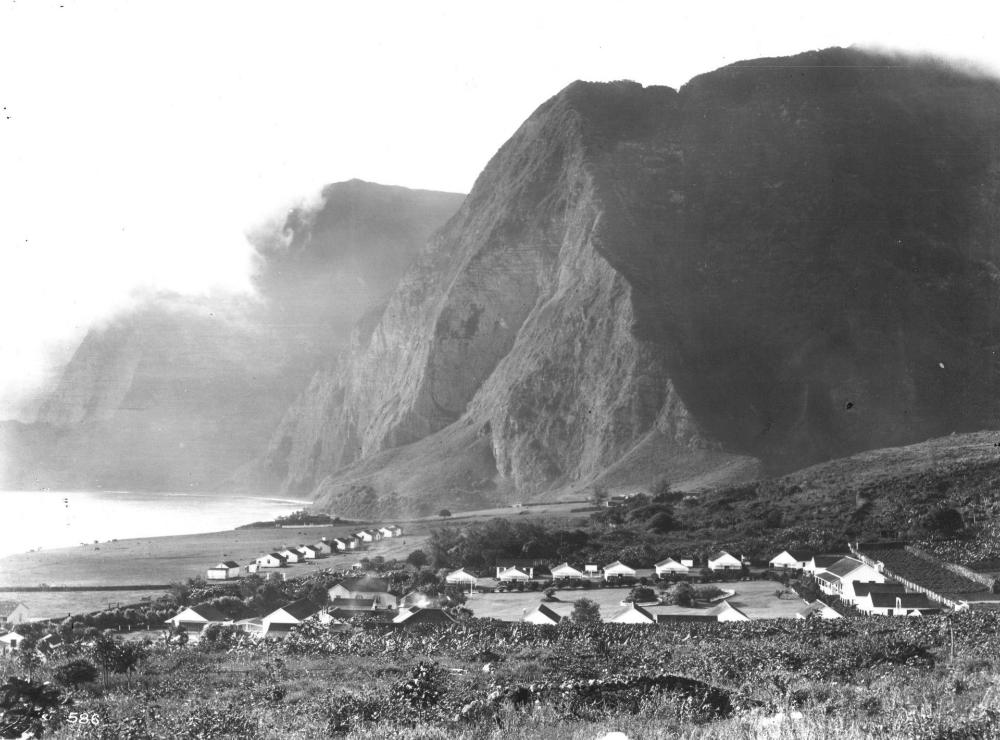 COURSE OVERVIEW
COURSE OVERVIEW
Paradise Lost is designed to show the interconnectedness of science and historical development. It does this by using Hawaii as a microcosm of how diseases shaped a particular location over the course of history. Without the introduction of specific diseases to the islands - venereal disease, bubonic plague, small pox, and leprosy - Hawaii would be a very different place than it is today. Though these aforementioned diseases (and others) were not introduced purposely, their presence required the importation of new peoples to work the sugar fields, hence Hawaii’s multiethnic composition today. These diseases led some EuroAmerican descendants to believe that native Hawaiians, or Kanaka Maoli as they are known, were going to die off. Why not, therefore, annex the Islands for the United States? Finally, Hawaii allows one to explore ethical issues in the treatment of sick citizens. The Hawaiian government created Kalaupapa Colony to treat lepors, and that led to unforeseen consequences.
This course assumes no specific prior knowledge of either biology or history, though the instructors expect students with previous knowledge will bring that to the aid of other students. We will examine the role of disease in shaping the world in which we live. Certainly, we cannot cover all disease epidemics everywhere, what we can do, however, is look at specific diseases and then extrapolate what the results of the disease might be elsewhere. How, for example, did the bubonic plague undo the feudal system of Europe? How might cholera undo the dictatorship of Robert Mugabe in Zimbabwe? Why did smallpox alter the religious and political landscape of North America? Why do researchers go to China when they want to understand the yearly flu virus? Examining questions such as these will allow you as students to better understand the interconnectedness between disease and societal development in an historical sense.
APPROVED CREDIT
History elective credit
SOPHIA: Scientific Intersections (SI)
PRIORITY DEADLINE
April 4: Complete applications will be reviewed beginning April 6. Students will be notified by April 14 of status. Some courses may fill by the priority deadline. Courses with open spaces will remain open until October 1 or until filled, whichever comes first.
COMPREHENSIVE FEE:
$3,900-$4,400: Includes airfare, all accommodation, entrance fees, guides, in-country transportation, daily breakfast, several group meals and the IPO health & safety fee.
EVALUATION
Laboratory Report #1: 10%
Laboratory Report #2: 10%
Laboratory Experience #3: 5%
Final Examination: 15%
Group Presentation: 10%
Leading Class Discussion: 5%
Paper Resulting from Group Presentation: 15%
Class Discussion: 20%
Transcription Experience: 5%
Variable(s): 5%
COURSE LEADERS

Dr. Michael J. Mullin
Department of History
Madsen Center 235
michael.mullin@augie.edu
Michael J. Mullin, professor of history, received his Ph.D. from the University of California, Santa Barbara. Trained as a colonial historian, with a specialization in American Indian history, Dr. Mullin is currently Augustana University’s National Endowment for the Humanities Chair of Regional Heritage. Before coming to Augustana University, he taught at Westmont College and UCSB. His publications have appeared in a variety of journals —
Early American Literature,
American Indian Culture and Research Journal,
Journal of American History,
South Dakota History,
American Indian Quarterly,
Pennsylvania Magazine of History and Biography, and
The Pacific Historical Review. He has contributed articles and chapters to an additional 13 books. His most recent publication
Science in the Service of the State, appeared in 2015. He is currently revising a monograph concerning the Shawnee Indians in the Seven Years War. In addition to his scholarship, Dr. Mullin twice received the Vernan and Mildred Niebuhr Faculty Excellence Award (1998, 2015), and held the Frederick C. Kohlmeyer Distinguished Professor Award in 2008.

Dr. Paul Egland
Department of Biology
Froiland Science Center 231
paul.egland@augie.edu
Paul Egland, professor of biology, earned his PhD in microbiology from The University of Iowa. From 2000-2004, he was a postdoctoral fellow at the
National Institutes of Health where he developed his research program studying bacterial communities and biofilms. Egland teaches General Microbiology and Introductory Microbiology. He also teaches courses for the Civitas program including “Infectious Disease: Tomorrow’s Epidemic” and an interdisciplinary course called “Germs Gone Wild: The Influence of Disease on Civilizations” with Dr. Michael Mullin from the History Department. He received the Vernon and Mildred Niebuhr Faculty Excellence Award in 2016. Dr. Egland is currently the Chair of the Natural Science Division and serves as the Chief Health Professions Advisor.
